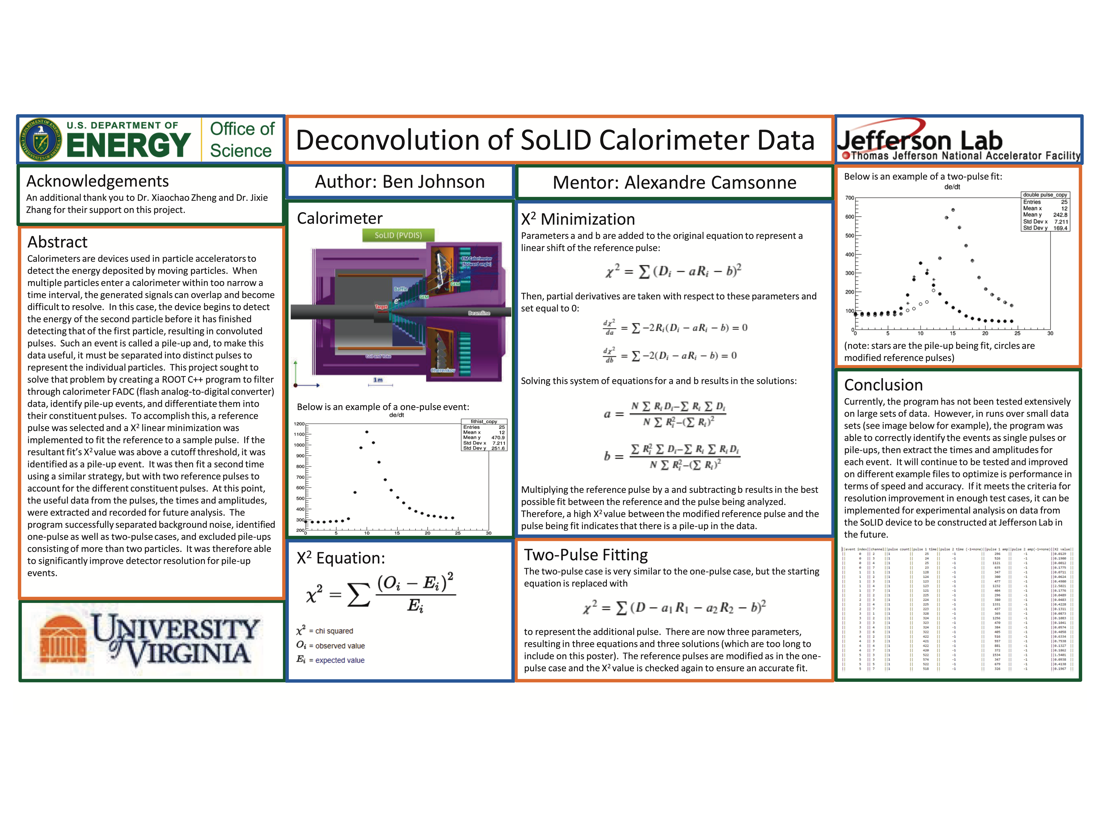Undergraduate Research at Jefferson Lab
Deconvolution of SoLID Calorimeter Data
Student: Benjamin Johnson
School: University of Virginia
Mentored By: Dr. Alexandre Camsonne
Calorimeters are devices used in particle accelerators to detect the energy deposited by moving particles. When multiple particles enter a calorimeter within too narrow a time interval, the generated signals can overlap and become difficult to resolve. In this case, the device begins to detect the energy of the second particle before it has finished detecting that of the first particle, resulting in convoluted pulses. Such an event is called a pile-up and, to make this data useful, it must be separated into distinct pulses to represent the individual particles. This project sought to solve that problem by creating a ROOT C++ program to filter through calorimeter FADC (flash analog-to-digital converter) data, identify pile-up events, and differentiate them into their constituent pulses. To accomplish this, a reference pulse was selected and a Χ2 linear minimization was implemented to fit the reference to a sample pulse. If the resultant fit's Χ2 value was above a cutoff threshold, it was identified as a pile-up event. It was then fit a second time using a similar strategy, but with two reference pulses to account for the different constituent pulses. At this point, the useful data from the pulses, the times and amplitudes, were extracted and recorded for future analysis. The program successfully separated background noise, identified one-pulse as well as two-pulse cases, and excluded pile-ups consisting of more than two particles. It was therefore able to significantly improve detector resolution for pile-up events.
[Watch the presentation on YouTube]

Citation and linking information
For questions about this page, please contact Education Web Administrator.
